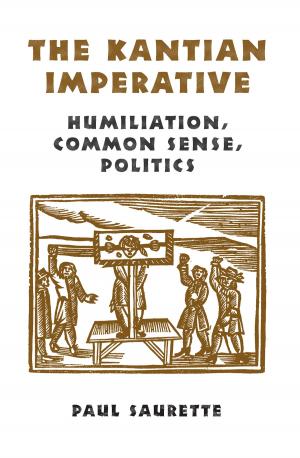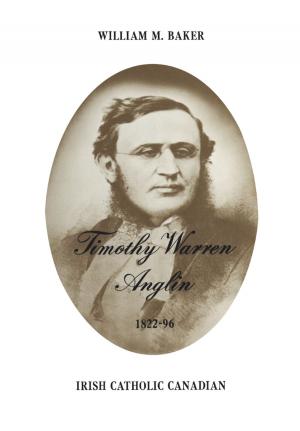William Lyon Mackenzie King, Volume II, 1924-1932
The Lonely Heights
Nonfiction, History, Americas, Canada, Biography & Memoir, Political| Author: | H. Neatby | ISBN: | 9781487591144 |
| Publisher: | University of Toronto Press, Scholarly Publishing Division | Publication: | December 15, 1963 |
| Imprint: | Language: | English |
| Author: | H. Neatby |
| ISBN: | 9781487591144 |
| Publisher: | University of Toronto Press, Scholarly Publishing Division |
| Publication: | December 15, 1963 |
| Imprint: | |
| Language: | English |
This second volume of the official biography of Mackenzie King (the first, written by R. MacG. Dawson, was published in 1958) covers the years 1924 to 1932. At the opening of this period, King was still an inexperienced and untried leader but the next few years were to test his qualities as he dealt with the concessions and compromises necessary in governing with an unstable majority and finally emerged the winner from the complicated chess games of parliamentary sessions. The Liberal success in the election of 1926 returned to office a Prime Minister with confidence in his own judgment and more inclined to hold firm to his own opinions against opposition from his colleagues or his party. After this election and the outcome of that in 1930, which handed over to the Conservatives the problems of the depression, the myth of King's political infallibility continued to grow. But a less able man would have been less lucky. As this book shows, King was a consummate party leader, with an unusual sensitivity to political danger and an unusual capacity to learn from his mistakes.
In the years 1924 to 1932 a number of familiar Canadian issues had to be dealt with: freight rates on land and sea, the debate between a tariff for protection, the problems of the Maritime Provinces, the natural resources of the Prairie Provinces, old age pensions, the St. Lawrence Waterway, immigration. There were also other more striking incidents, which the author chronicles with verve and style: the customs scandal of 1926, the heady pleasures of the years of prosperity and the dismal frustrations of the years of depression, the election of 1930, the Beauharnois sensation. Throughout skilful use is made of the public records of these years, of the King papers, and the copious pages of King's own daily diary of his political problems, his conversations with colleagues and diplomats, his worries and frustrations over difficult decisions, his own aims and ideals.
Over these years King developed and strengthened his convictions about the over-riding concern of all Canadian political leaders, national unity. Only a proper estimate of what was desirable, what was necessary, and what was impossible could guide in the working out of policies that would be tolerable by the whole of Canada, and it was, of course, King's firm belief and the guiding principle of his political life that the cause of national unity was best served by the cause of Liberalism, since that party above all represented the major sections or groups in Canada and alone could effect a satisfactory compromise among them.
This book, brilliant and effective in conception and execution, is a study of political leadership in a divided nation, a nation which even in calmer times is proverbially difficult to govern. It is also a revealing and convincing study of a complex man whose drab public image concealed unsuspected eccentricities.
This second volume of the official biography of Mackenzie King (the first, written by R. MacG. Dawson, was published in 1958) covers the years 1924 to 1932. At the opening of this period, King was still an inexperienced and untried leader but the next few years were to test his qualities as he dealt with the concessions and compromises necessary in governing with an unstable majority and finally emerged the winner from the complicated chess games of parliamentary sessions. The Liberal success in the election of 1926 returned to office a Prime Minister with confidence in his own judgment and more inclined to hold firm to his own opinions against opposition from his colleagues or his party. After this election and the outcome of that in 1930, which handed over to the Conservatives the problems of the depression, the myth of King's political infallibility continued to grow. But a less able man would have been less lucky. As this book shows, King was a consummate party leader, with an unusual sensitivity to political danger and an unusual capacity to learn from his mistakes.
In the years 1924 to 1932 a number of familiar Canadian issues had to be dealt with: freight rates on land and sea, the debate between a tariff for protection, the problems of the Maritime Provinces, the natural resources of the Prairie Provinces, old age pensions, the St. Lawrence Waterway, immigration. There were also other more striking incidents, which the author chronicles with verve and style: the customs scandal of 1926, the heady pleasures of the years of prosperity and the dismal frustrations of the years of depression, the election of 1930, the Beauharnois sensation. Throughout skilful use is made of the public records of these years, of the King papers, and the copious pages of King's own daily diary of his political problems, his conversations with colleagues and diplomats, his worries and frustrations over difficult decisions, his own aims and ideals.
Over these years King developed and strengthened his convictions about the over-riding concern of all Canadian political leaders, national unity. Only a proper estimate of what was desirable, what was necessary, and what was impossible could guide in the working out of policies that would be tolerable by the whole of Canada, and it was, of course, King's firm belief and the guiding principle of his political life that the cause of national unity was best served by the cause of Liberalism, since that party above all represented the major sections or groups in Canada and alone could effect a satisfactory compromise among them.
This book, brilliant and effective in conception and execution, is a study of political leadership in a divided nation, a nation which even in calmer times is proverbially difficult to govern. It is also a revealing and convincing study of a complex man whose drab public image concealed unsuspected eccentricities.















